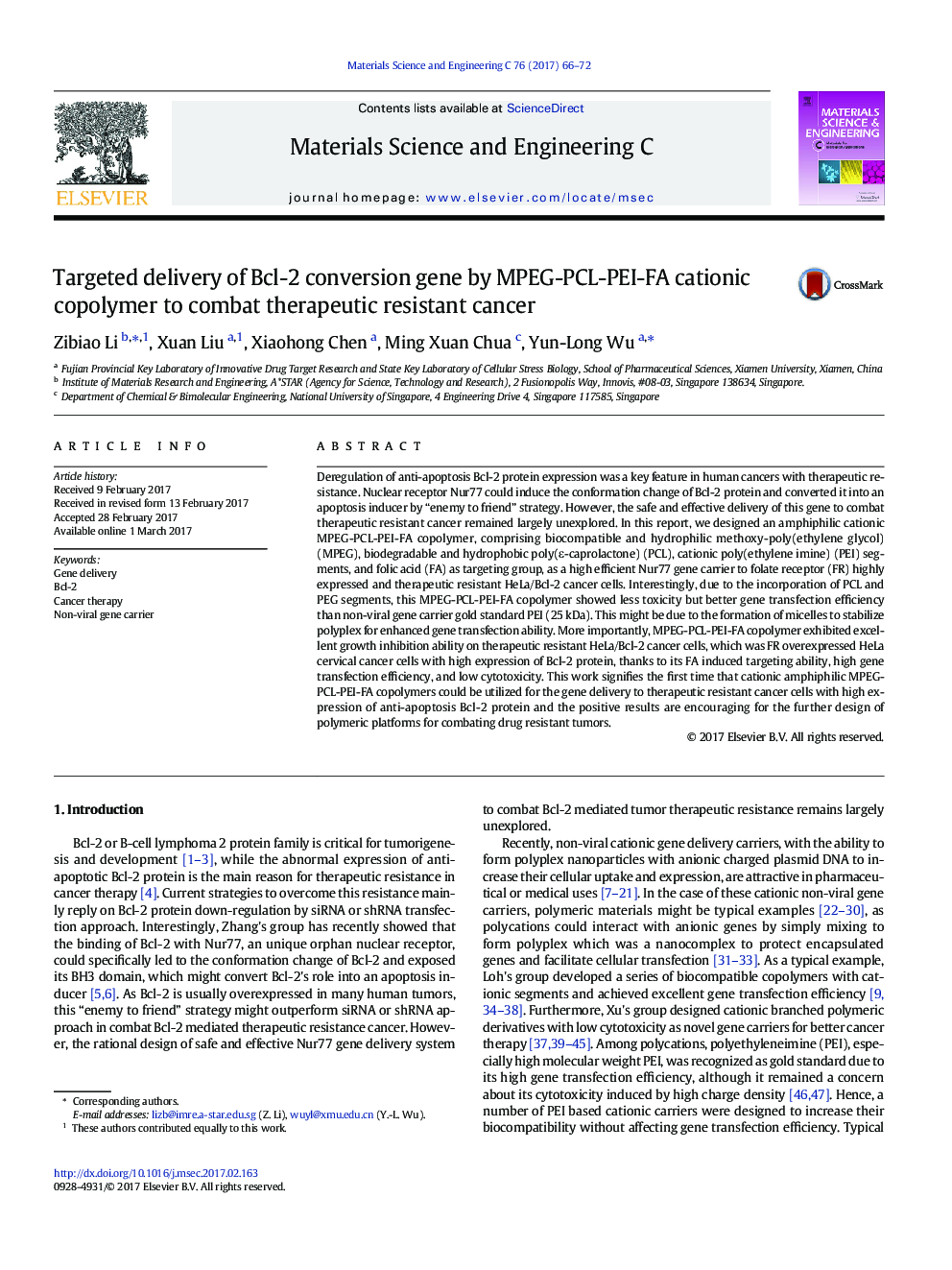| Article ID | Journal | Published Year | Pages | File Type |
|---|---|---|---|---|
| 5435093 | Materials Science and Engineering: C | 2017 | 7 Pages |
â¢An amphiphilic cationic MPEG-PCL-PEI-FA copolymer with cancer cell targeting ability was designed.â¢This polymer was with low cytotoxicity and good gene transfection efficiency.â¢This copolymer could transfect Bcl-2 converting gene to combat therapeutic resistant cancer.
Deregulation of anti-apoptosis Bcl-2 protein expression was a key feature in human cancers with therapeutic resistance. Nuclear receptor Nur77 could induce the conformation change of Bcl-2 protein and converted it into an apoptosis inducer by “enemy to friend” strategy. However, the safe and effective delivery of this gene to combat therapeutic resistant cancer remained largely unexplored. In this report, we designed an amphiphilic cationic MPEG-PCL-PEI-FA copolymer, comprising biocompatible and hydrophilic methoxy-poly(ethylene glycol) (MPEG), biodegradable and hydrophobic poly(ε-caprolactone) (PCL), cationic poly(ethylene imine) (PEI) segments, and folic acid (FA) as targeting group, as a high efficient Nur77 gene carrier to folate receptor (FR) highly expressed and therapeutic resistant HeLa/Bcl-2 cancer cells. Interestingly, due to the incorporation of PCL and PEG segments, this MPEG-PCL-PEI-FA copolymer showed less toxicity but better gene transfection efficiency than non-viral gene carrier gold standard PEI (25 kDa). This might be due to the formation of micelles to stabilize polyplex for enhanced gene transfection ability. More importantly, MPEG-PCL-PEI-FA copolymer exhibited excellent growth inhibition ability on therapeutic resistant HeLa/Bcl-2 cancer cells, which was FR overexpressed HeLa cervical cancer cells with high expression of Bcl-2 protein, thanks to its FA induced targeting ability, high gene transfection efficiency, and low cytotoxicity. This work signifies the first time that cationic amphiphilic MPEG-PCL-PEI-FA copolymers could be utilized for the gene delivery to therapeutic resistant cancer cells with high expression of anti-apoptosis Bcl-2 protein and the positive results are encouraging for the further design of polymeric platforms for combating drug resistant tumors.
Graphical abstractDownload high-res image (147KB)Download full-size image
